
Images courtesy of Walt Disney Pictures
THE LITTLE MERMAID– 3 STARS
Putting my school teacher hat on to match the spirit of this website, The Little Mermaid, like every movie really, is, for better or worse, a series of tests. It has become nearly impossible during this current cycle of Disney “re-imaginings” not to have questions of comparison arise between the original animated classics and their newfangled remakes. Depending on a person’s fandom or scruples (or both), that list can be long, short, casual, or petty.
The length of possible questions is easy to recognize. Some of these are just a couple of barbed spines on the sea urchin for The Little Mermaid. How animated, literally and figuratively, can a movie orientate Melissa McCarthy, hidden through much of the film’s marketing, to embody one of the studio’s all-time greatest villains? How invested is Javier Bardem playing the patriarch King Triton? What’s your tolerance level for the schtick of Awkwafina? How does this movie address naive romance in a more modern era and better flesh out the male lead? Why is this movie longer and– what everyone wants to know– how good is recording artist Halle Bailey in the titular role?
LESSON #1: WHEN YOU NAIL IT– For this very writer, the only question that mattered for enjoying The Little Mermaid and being pulled into its whirlpool was the last one. Once Halle Bailey sings “Part of Your World,” it’s over. Her nubile and sizable voice backed by Alan Menken’s returning and supercharged score puts stirring emphasis on every swing of emotion in that introductory song. There’s a swell in the music that feels like it wasn’t there before 34 years ago. No American Idol or The Voice judges are required for consultation or scoring. When you hear Halle, there is no doubt. She crushes it and aces the biggest test this movie needed to pass.
LESSON #2: WHAT ELSE MATTERS TO YOU– Every other item from that comparison list now comes with a Halle Bailey qualifier attached to it. If you need an enhancer, know that Hamilton’s Daveed Diggs doesn’t miss an ounce of Sebastian’s fervor next to Ariel, creating a second stellar performer. How much or how little do the next details matter if Bailey and Diggs are there nailing the musical side? That measurement among viewers will determine whether this is solely a wonderful soundtrack people keep to play without the visuals or a total movie experience they will seek out and maybe keep coming back to like the 1989 family favorite. Disney (and I) hope it’s the latter.
From the onset, Rob Marshall’s The Little Mermaid puts the majesty of non-animated Mother Nature front and center. Establishing photography of churning oceans captured by cinematographer Dion Beebe (Edge of Tomorrow) accompanies a quote from Hans Christian Anderson’s source 1837 fairy tale. It reads, “But a mermaid has no tears, and therefore she suffers so much more.” A line like that declares an upcoming emotional power equal to that of the mighty waves themselves.
For the most part, a thickened The Little Mermaid, scripted by Hollywood remake specialist David Magee (A Man Called Otto, Lady Chatterley’s Lover), delivers on that promise. Ariel (Bailey), one of the unmarried mermaid daughters of the sea-ruling King Triton (Academy Award winner Javier Bardem), becomes fascinated with the surface world, despite the fact that humans are responsible for the death of her mother (a welcome story wrinkle of heft). She’s an ardent collector of sunken trinkets alongside her fish bestie Flounder (Room’s Jacob Tremblay).
Cue that first song and Bailey taking over the middle of the film. Ariel’s curiosity brings her topside to observe a passing galleon and become smitten with the seafaring Prince Eric (Jonah Hauer-King of A Dog’s Way Home) leading the crew. In a daring recreation of the storm sequence, she rescues him from drowning and serenades her way into his heart as a mystery woman.
LESSON #3: THE RULES OF PARENTS WITH ROYAL EXPECTATIONS– The parallels of royal expectations shared by Eric and Ariel are developed slightly further from the animated film by Magee’s adaptation. Jaded by the fate of his wife, Triton forbids any mermaid or merman from making contact with humans and enlists Sebastian (Diggs)– in an almost Anton Chigurh fashion for a kid’s movie– to keep a watchful guard over his errant daughter. Likewise, Eric’s butler Grimsby (the long-lost Art Malik of True Lies) and his adoptive mother Queen Selina (a new character played by award-winning stage actress Noma Dumezweni) would greatly prefer Eric give up his adventuring to become a proper statesman. Both families have legacies and marriages ever on the mind, creating its share of angst.
Meanwhile, the tentacled sea witch Ursula (Melissa McCarthy) looms large. Observing the fallout between Ariel and Triton, the murky maven possesses the sorcery possible to transform Ariel into a human for three days to woo her man. As loyal fans know, the price is Ariel’s siren-like voice, along with an extra dollop of amnesia to raise the difficulty this time around. When The Little Mermaid takes away Ariel’s pipes, hired songwriter extraordinaire Lin-Manuel Miranda grants Eric a passionate solo song, “Wild Uncharted Waters,” and our leading lady the new “For the First Time” sung through internal monologue to fill in the gaps and extended sequences.
LESSON #4: REACH OUT TO OTHER CULTURES– Inside The Little Mermaid and out, Disney’s tried-and-true moralistic intentions remain obvious and clear. This fairy tale’s two dominant settings are presented as two worlds never meant to be together. It’s the adult children’s progressive principles countering their protective parents– namely a willingness to reach out to other cultures– that shimmers the movie’s heart. Naturally, love builds the best bridges across those gulfs, and the movie puts some time after the big ending for a coda containing a shade more credence than a leap to an instant wedding.
With no ifs, ands, butts, or fins, Halle Bailey is a pure star. She plays this role thankfully older than the teen from the animated film, granting this The Little Mermaid a welcome maturity that does not woefully sacrifice grace, heroism, or influence overall. Jonah Hauer-King is another dreamy discovery and makes for a compelling pairing with Bailey. The improved motivations given to his character, especially conveyed in his solo ballad, are a tremendous boost. “Wild Uncharted Waters” deserves, like “Evermore” from 2017’s updated Beauty and the Beast, worthy Academy Award consideration for Best Original Song this coming winter.
Speaking of big sounds, the rollers and breakers of the Mediterranean shooting locations in Sardinia, Italy are nothing short of stunning. The production design work by two-time Oscar winner John Myhre (Memoirs of a Geisha) and his team of artists provided detailed rustic textures that traditional animation could not achieve. The very same compliment can be shared to the many lush costumes designed by four-time Colleen Atwood (Alice in Wonderland), one of the best in the business. Nothing built looks dull, where the test becomes the digital side.
Even if they are launched from squirt guns or fancy cannons just out of view from the camera, the brisk sprays of watery mist add to the greenscreens of everything else. In that regard, The Little Mermaid finds a decent balance for the lush menagerie of underwater VFX supervised by Tim Burke (both Harry Potter and the Deathly Hallows films). Chasing jazzy choreography drawn up by Joey Pizzi (Chicago), Dion Beebe’s camerawork stays extremely nimble and fluid to move effortlessly through visible and invisible mediums. This may come off as surprising to the cinephile crowd, but The Little Mermaid– while it’s not Avatar: The Way of Water by any stretch of the imagination– might have actually looked even better shot or converted to 3D. The movie pops and moves that well in several energetic places.
Alas, though I try, no matter how many compliments can be paid to Halle Bailey or how vibrant the presentation is, that previously mentioned list of comparative test questions will still rear its ugly head no matter what. Javier Bardem is indeed overqualified to play the powerful father figure, even if he owns the screen wearing a majestic cape made from a school of digital fish in one scene. For the sidekick lovers, Jacob Tremblay’s Flounder is body-shamed and sidelined. Though, one could gladly argue the cuddly character you pretend to remember and cherish really didn’t do much in 1989 other than react the same as he does here. Awkwafina voicing the doltish Scuttle counts as contemporary casting and an acquired taste. The Farewell’s comedienne would have been solid had she not been senselessly granted a mismatched new song, “The Scuttlebutt,” that could have been exchanged for a new version of the egregiously excised “Les Poissons.”
Likely the biggest question from the list was the first one centered on Melissa McCarthy as the new incarnation of Ursula. No offense to the Oscar-winning Spaniard below her in the credits, but she is the biggest name and most familiar face of The Little Mermaid cast for the general public. Melissa is the eyebrow-raiser known for physical comedy. However, this time, she was likely wrapped in a performance capture suit or piloted by puppeteers for most of the film.
Director Rob Marshall patiently allows McCarthy’s Ursula to haunt the fringes. As she arrives, she never quite fully unfurls her evil the same way she does her animated extremities, even through the “Poor Unfortunate Souls” number. That quieter tact leaves you waiting for the next evil gear with proper dread and anticipation. Maybe that should have been a bigger showstopper moment, but Ursula is dastardly enough without over-the-top camp for this version of The Little Mermaid. Where the VFX noticeably cannot keep up with the actress’s attempts at menace is during her gigantic climactic transformation, which looks sluggish and smudged as if that’s when the special effect budget ran out.
Through it all, the goal of The Little Mermaid, beyond passing audience tests, is to put on a grand show. Folks are coming to the big screen to be dazzled. The celebrated music does that purely on its own, but the rest of the spectacle, amid some foibles, is all there as well. This is a fitting use of an entertainment appointment for families ready to skip the streaming couch for the summertime big screen.
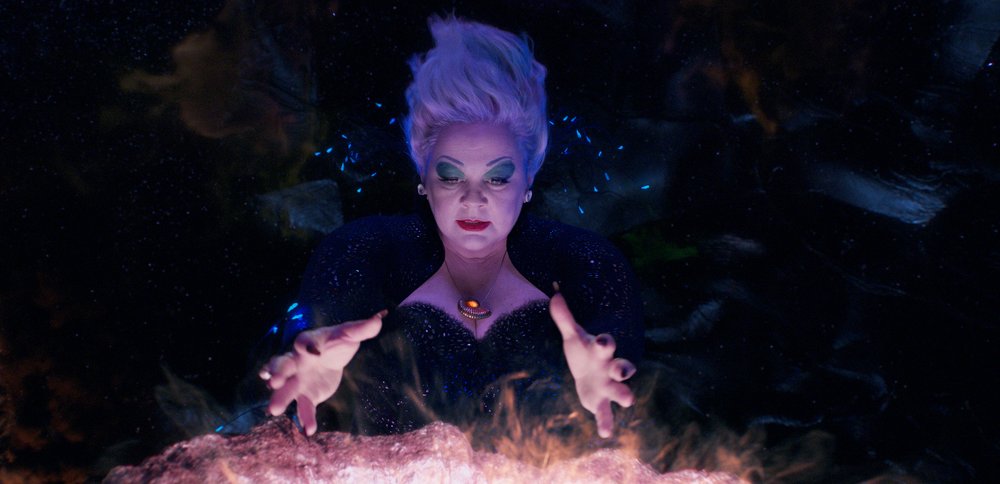
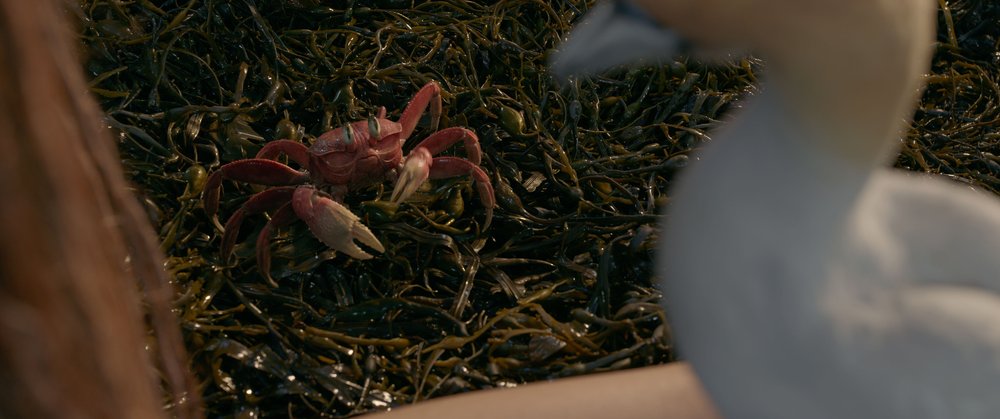
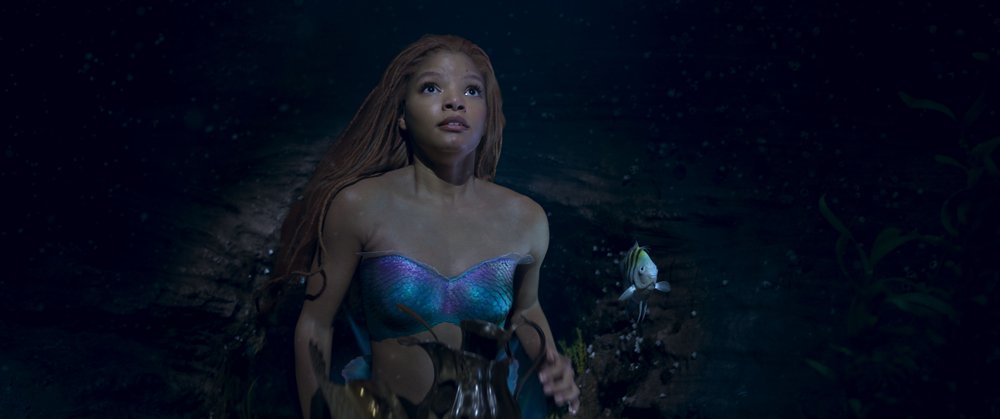

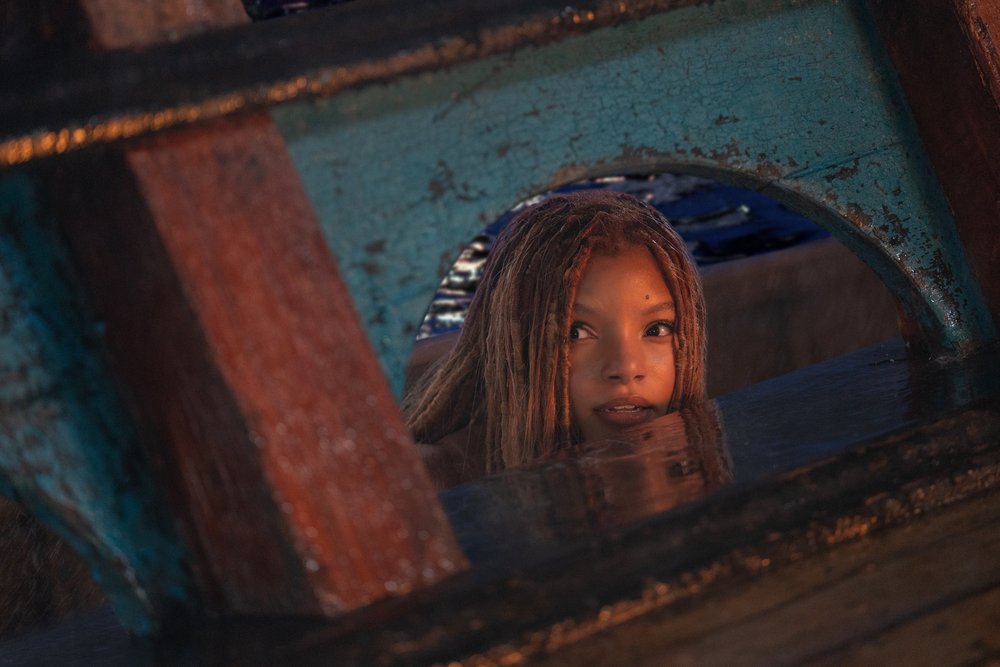
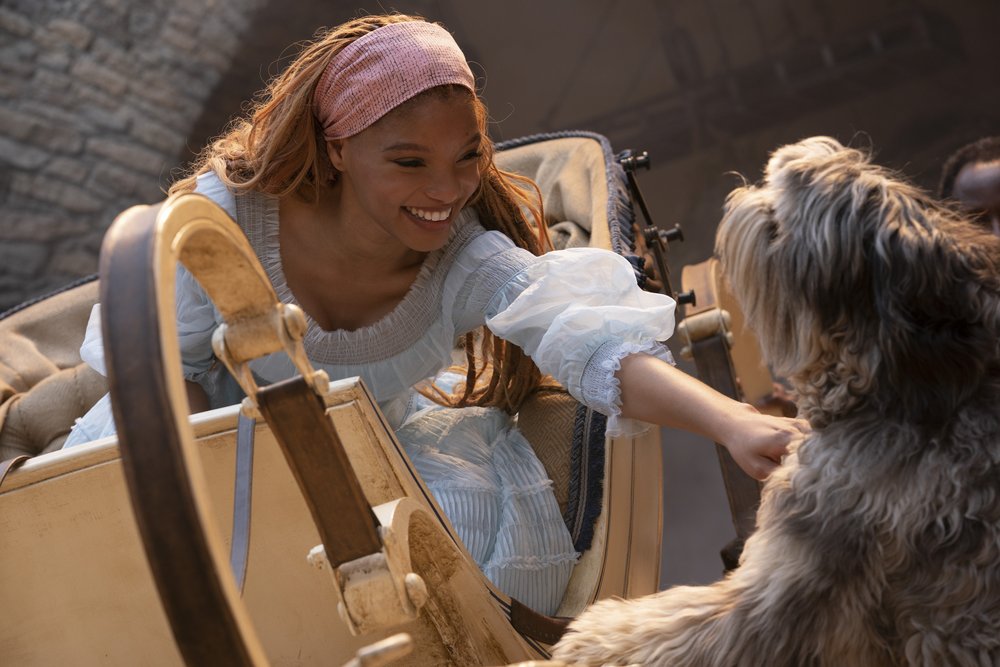
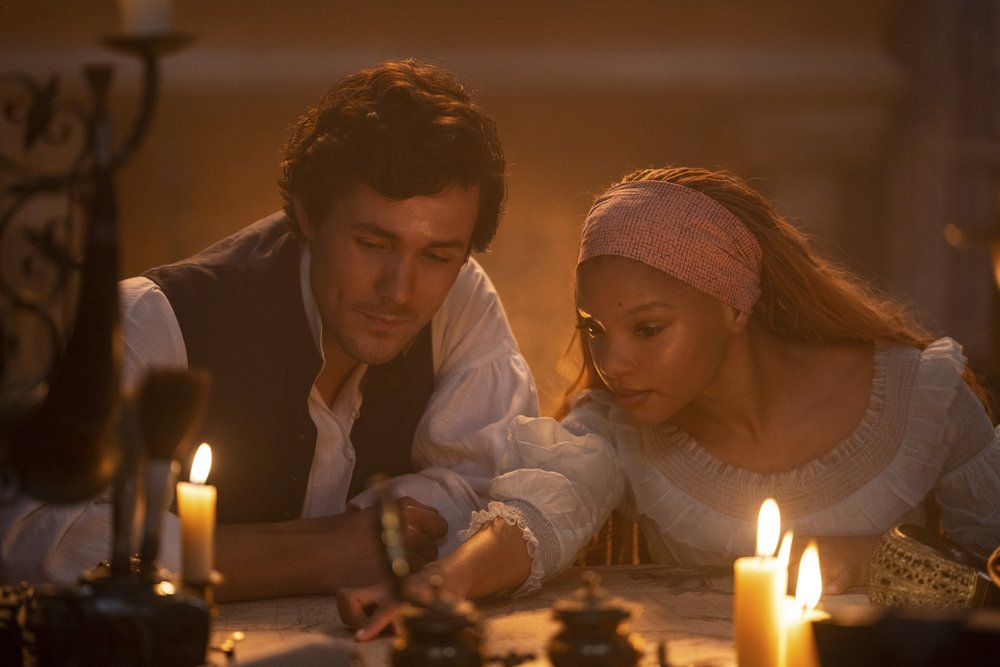
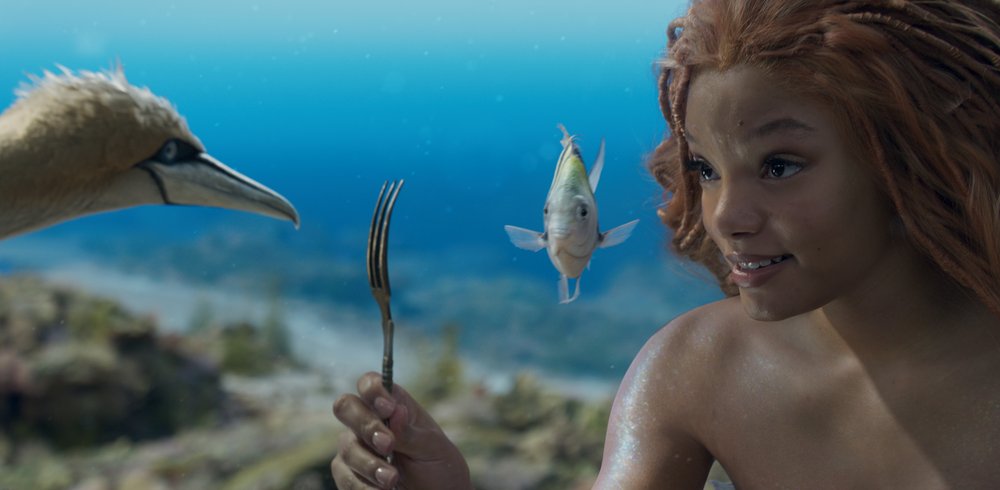
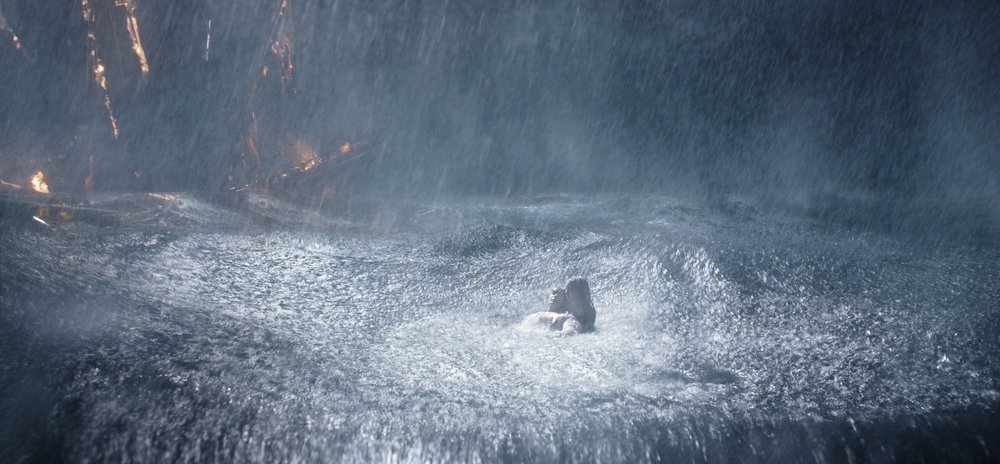

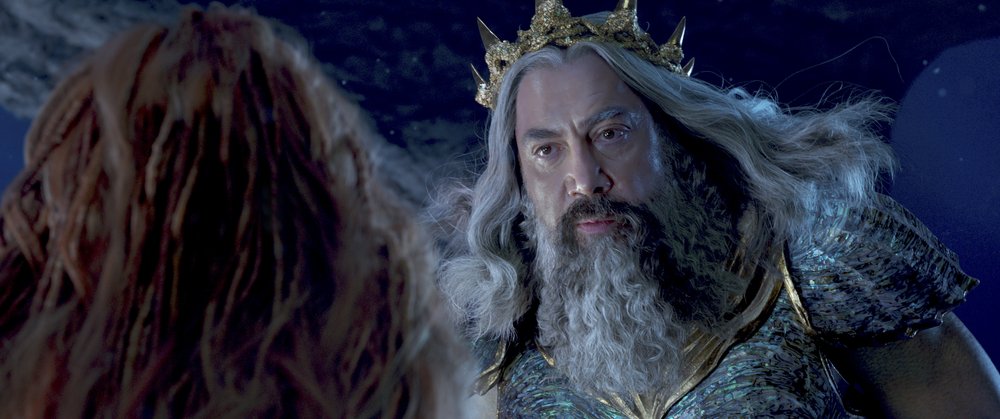
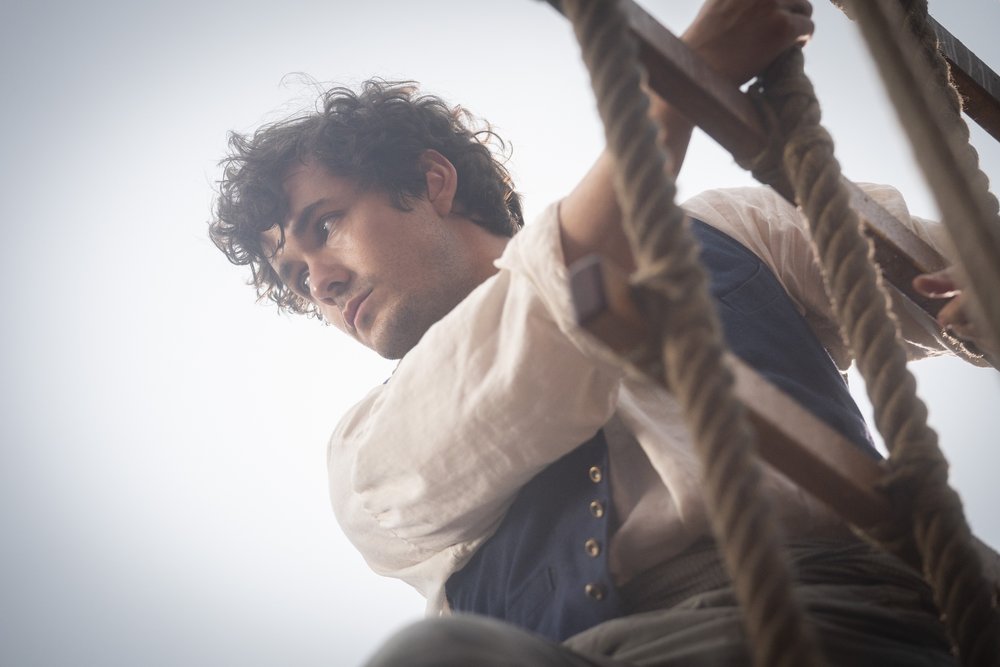
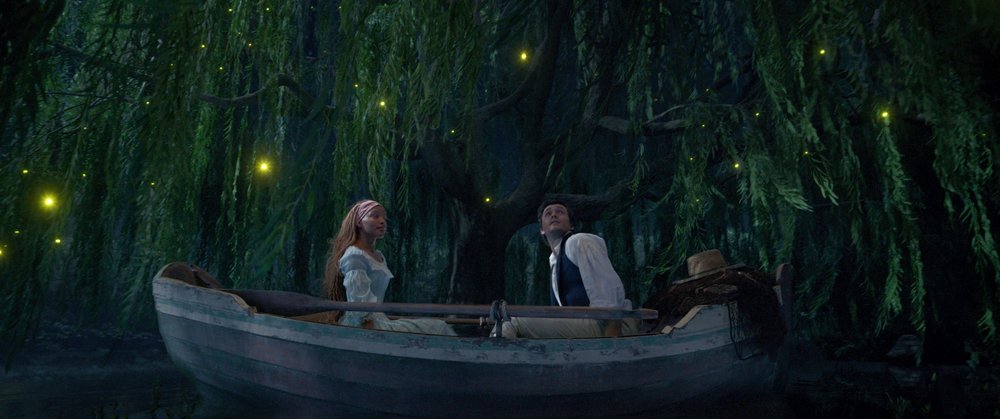

LOGO DESIGNED BY MEENTS ILLUSTRATED (#1120)
from Review Blog https://ift.tt/aVoJPB5







No comments:
Post a Comment